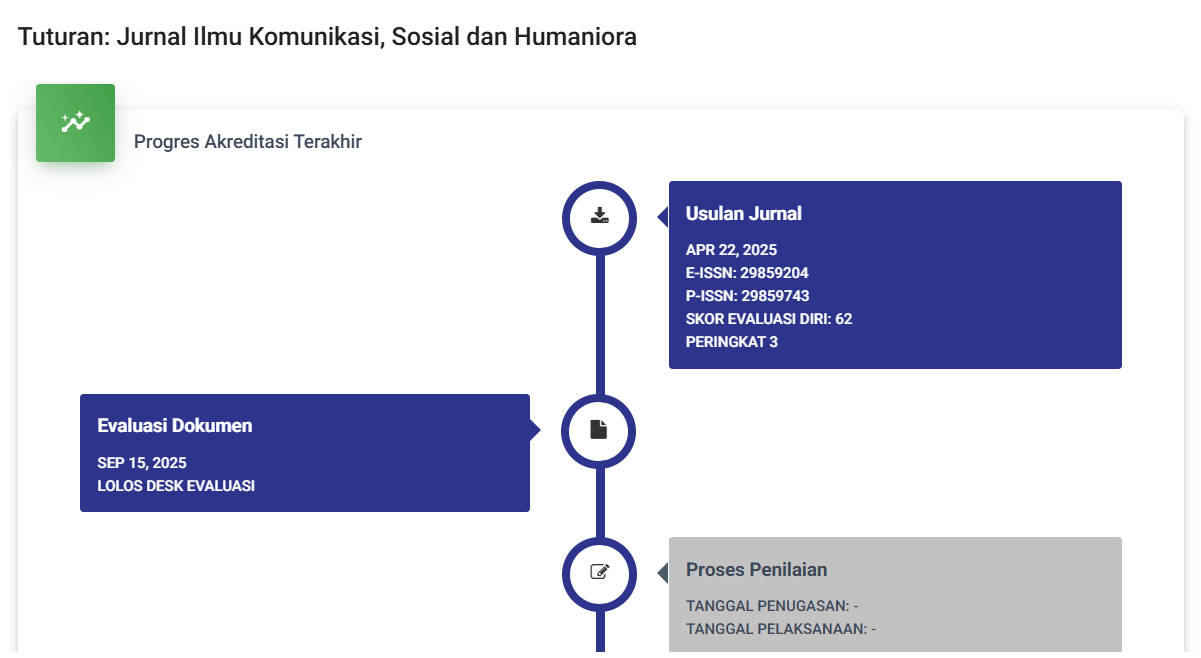Dari Netflix Ke Negeri Gingseng: Komunikasi Budaya dan Pariwisata dalam Film 20th Century Girl
DOI:
https://doi.org/10.47861/tuturan.v3i2.1842Keywords:
20th Century Girl, Film tourism, Intercultural communication, Korean Wave, South Korean culturelAbstract
In the context of globalization, film functions as a strategic medium for cultural exchange and the reinforcement of national identity. This study investigates 20th Century Girl (2022), a South Korean film distributed by Netflix, as a vehicle for intercultural communication and film-induced tourism. Employing a descriptive qualitative method and content analysis, the paper explores how narrative nostalgia, thematic depth, and cultural representation generate emotional engagement and stimulate interest in South Korea as a travel destination. The study also highlights the pivotal role of Netflix in globalizing Korean audiovisual content and strengthening the Korean Wave (Hallyu). Findings indicate that the film not only illustrates essential Korean cultural values such as the importance of friendship, family, and school traditions but also indirectly showcases cultural tourism assets, including filming locations and local lifestyles. These insights affirm the significance of cinema as a tool of cultural diplomacy and soft power for enhancing South Korea’s image on the global stage.
References
Air University. (2022). The growth of South Korean soft power and its geopolitical implications. Journal of Indo-Pacific Affairs. https://www.airuniversity.af.edu/JIPA/Display/Article/3212634/the-growth-of-south-korean-soft-power-and-its-geopolitical-implications/
Beeton, S. (2005). Film-induced tourism. Channel View Publications.
DetikTravel. (2024, May 14). Pariwisata berbasis film disebut bisa tangani overtourism di Spanyol. https://travel.detik.com/travel-news/d-7858171/pariwisata-berbasis-film-disebut-bisa-tangani-overtourism-di-spanyol
Hall, E. T. (1976). Beyond culture. Anchor Books.
Hall, S. (1997). Representation: Cultural representations and signifying practices. Sage.
Hofstede, G. (2001). Culture’s consequences: Comparing values, behaviors, institutions and organizations across nations (2nd ed.). Sage Publications.
Jin, D. Y. (2022). Netflix’s globalization strategy and the rise of Korean media content: Lessons from “Squid Game”. International Journal of Communication, 16, 3519–3538. https://ijoc.org/index.php/ijoc/article/download/20718/4392
Kalesaran, Y. N. (2017). Fenomena Hallyu di Indonesia dan dampaknya terhadap budaya lokal. Holistik: Jurnal Studi Sosial dan Budaya, 10(19), 13–22. https://ejournal.unsrat.ac.id/v3/index.php/holistik/article/download/14226/13800
Kim, H., Agrusa, J., Chon, K., & Cho, Y. (2007). The effects of Korean pop culture on Hong Kong residents’ perceptions of Korea as a potential tourist destination. Journal of Travel & Tourism Marketing, 22(2), 27–44. https://doi.org/10.1300/J073v22n02_03
Nye, J. S. (2004). Soft power: The means to success in world politics. Public Affairs.
Ramadhan, M. R., & Ilyas, M. A. (2022). Peran media dalam meningkatkan pemahaman komunikasi antarbudaya melalui tayangan drama Korea. Diksima: Jurnal Ilmiah Dakwah dan Komunikasi, 2(2), 107–119. https://diksima.pubmedia.id/index.php/diksima/article/download/104/141/256
Richards, G. (1996). Cultural tourism in Europe. CABI.
Samovar, L. A., Porter, R. E., McDaniel, E. R., & Roy, C. S. (2012). Communication between cultures (8th ed.). Wadsworth Cengage Learning.
Tomlinson, J. (1999). Globalization and culture. University of Chicago Press.
Downloads
Published
How to Cite
Issue
Section
License
Copyright (c) 2025 TUTURAN: Jurnal Ilmu Komunikasi, Sosial dan Humaniora

This work is licensed under a Creative Commons Attribution-ShareAlike 4.0 International License.








